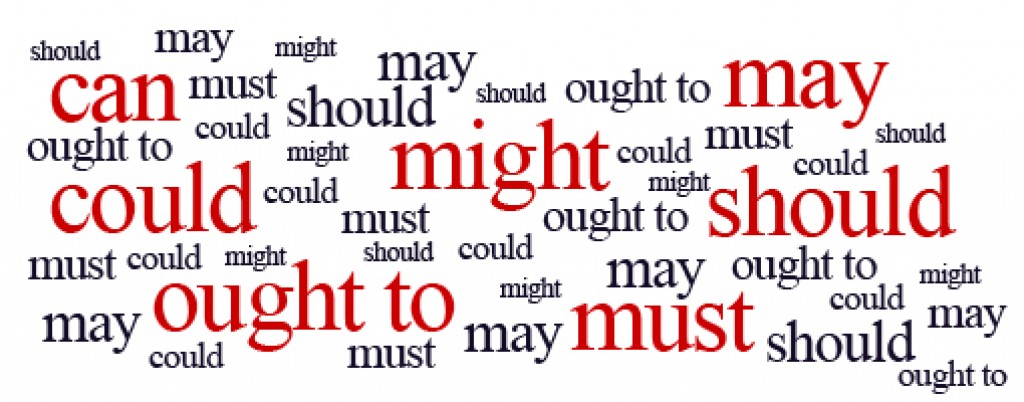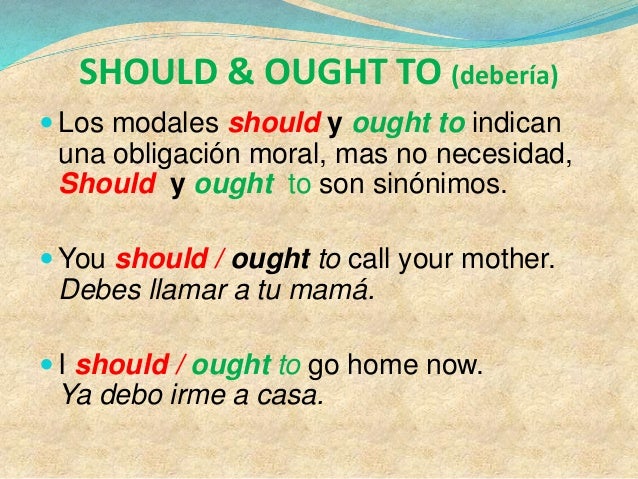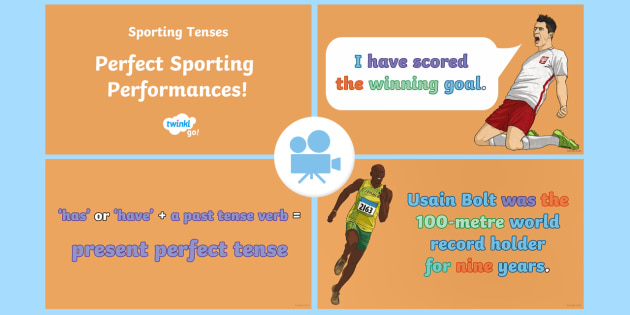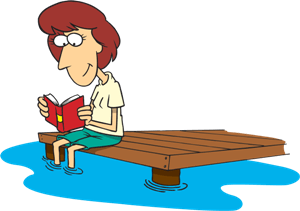Present perfect
El "present perfect" de cualquier verbo está compuesto por dos elementos: la forma apropiada del verbo auxiliar to have (en presente) y el "past participle" del verbo principal. La forma del "past participle" de un verbo regular es raíz+ed, e.g. played, arrived, looked.
Gramatica
| Afirmativa | ||
| Sujeto | to have | past participle |
| She | has | visited. |
| Negativa | ||
| Sujeto | to have + not | past participle |
| She | has not (hasn't) | visited. |
| Interrogativa | ||
| to have | sujeto | past participle |
| Has | she | visited? |
| Interrogativa negativa | ||
| to have + not | sujeto | past participle |
| Hasn't | she | visited? |
| Afirmativa | ||
| Sujeto | to have | past participle |
| She | has | visited. |
| Negativa | ||
| Sujeto | to have + not | past participle |
| She | has not (hasn't) | visited. |
| Interrogativa | ||
| to have | sujeto | past participle |
| Has | she | visited? |
| Interrogativa negativa | ||
| to have + not | sujeto | past participle |
| Hasn't | she | visited? |
FUNCIONES DEL "PRESENT PERFECT"
El "present perfect" se emplea para señalar un vínculo entre el presente y el pasado. El tiempo en que transcurre la acción es anterior al presente pero inespecífico y, a menudo, recae un mayor interés sobre el resultado que sobre la propia acción.
Ejemplos con verbos regulares:
- I have worked for my uncle. ...
- She has finished her homework. ...
- I have to go, we have talked for more than two hours. ...
- We have visited them once a week for the last year. ...
- He has returned my car at last. ...
- It has rained once a week for the last month. ...
- They have completed the project.
- I have worked for my uncle. ...
- She has finished her homework. ...
- I have to go, we have talked for more than two hours. ...
- We have visited them once a week for the last year. ...
- He has returned my car at last. ...
- It has rained once a week for the last month. ...
- They have completed the project.
Siempre hay que recordar que existen verbos irregulares:
- I have gone (Yo he ido)
- You have gone (Tú has ido)
- He has gone (Él ha ido)
- She has gone (Ella ha ido)
- It has gone (Eso ha ido)
- We have gone (Nosotros hemos ido)
- You have gone (Usted ha ido)
- They have gone (Ellos han ido)
Completa las frases con la forma correcta del verbo que se encuentra entre paréntesis.
Simple past
FUNCIONES DEL "SIMPLE PAST"
El "simple past" se utiliza para hablar de una acción que concluyó en un tiempo anterior al actual. La duración no es relevante. El tiempo en que se sitúa la acción puede ser el pasado reciente o un pasado lejano.
Siempre se utiliza el "simple past" para referirse a cuándo ocurrió algo, de modo que va asociado a ciertas expresiones temporales que indican:
- frecuencia: often, sometimes, always
I sometimes walked home at lunchtime.
I often brought my lunch to school. - un tiempo determinado: last week, when I was a child, yesterday, six weeks ago
We saw a good film last week.
Yesterday, I arrived in Geneva.
She finished her work atseven o'clock
I went to the theatre last night - un tiempo indeterminado: the other day, ages ago, a long time agoPeople lived in caves a long time ago.
- She played the piano when she was a child.
Nota: el término ago es útil para expresar distancia temporal en el pasado. Se coloca después del periodo de tiempo de que se trate: a week ago, three years ago, a minute ago.
FORMACIÓN DEL "SIMPLE PAST"
FORMACIÓN DEL "SIMPLE PAST" CON VERBOS REGULARES
| Afirmativa | ||
| Sujeto | + raíz + ed | |
| I | skipped. | |
| Negativa | ||
| Sujeto | + did not | + infinitivo sin to |
| They | didn't | go. |
| Interrogativa | ||
| Did | + sujeto | + infinitivo sin to |
| Did | she | arrive? |
| Interrogativa negativa | ||
| Did not | + sujeto | + infinitivo sin to |
| Didn't | you | play? |
TO WALK
| Afirmativa | Negativa | Interrogativa |
|---|---|---|
| I walked | I didn't walk | Did I walk? |
| You walked | You didn't walk | Did you walk? |
| He walked | He didn't walk | Did he walk? |
| We walked | We didn't walk | Did we walk? |
| They walked | They didn't walk | Did they walk? |
SIMPLE PAST": VERBOS IRREGULARES
Algunos verbos hacen el "simple past" de forma irregular. Estos son los más comunes.
TO GO
- He went to a club last night.
- Did he go to the cinema last night?
- He didn't go to bed early last night.
TO GIVE
- We gave her a doll for her birthday.
- They didn't give John their new address.
- Did Barry give you my passport?
TO COME
- My parents came to visit me last July.
- We didn't come because it was raining.
- Did he come to your party last week?
Ejemplos:
- You worked very hard last week. (Tú trabajaste muy duro la semana pasada)
- She lived in Japan last year. (Ella vivió en Japón el año pasado)
- They learned how to swim two years ago. (Ellos aprendieron a nadar hace dos años)
- She liked to sit in the sun. (A ella le gustó sentarse en el sol)
- He always walked to school. (Él siempre caminó para ir a la escuela)
- I painted my house last weekend. (Yo pinté mi casa el fin de semana pasado)
- Mr. Green worked with my uncle. (El Sr. Green trabajó con mi tío)
- I married Kelly last year. (Me casé con Kelly el año pasado)
- He worked in his garden yesterday. (El trabajó en su jardín ayer)
- He studied for his English class. (Él estudió para su clase de inglés)
- You watched television every night. (Usted vio televisión todas las noches)
- They talked on the phone last week. (Ellos hablaron por teléfono la semana pasada)
- She wanted to learn French. (Ella quiso aprender francés)
- They worked together for many years. (Ellos trabajaron juntos por muchos años)
- She wished to learn Italian. (Ella deseó aprender italiano.
Completa las frases con la forma correcta del verbo que se encuentra entre paréntesis.
Diferencias entre “Should” y “Ought to”
En ambos casos should y ought to pueden ser intercambiados, y de la misma manera, ambos son usados para expresar “consejos, obligaciones o labores”.Should: Se usa cuando queremos expresar una opinión subjetiva. En otras palabras, cuando comenzamos a decir algo como por ejemplo: “What I think is…”.
El verbo should
Formación
Afirmativo: I should play, you should play, he should play…
Negativo: I should not play, you should not play, he should not play… Se puede contraer a shouldn’t.
Interrogativo: Should I play? Should you play? Should he play?
Algunos ejemplos:Negativo: I should not play, you should not play, he should not play… Se puede contraer a shouldn’t.
Interrogativo: Should I play? Should you play? Should he play?
You should call your parents more often.
She should apologise before he stops talking to her.
you should call Mary.
It's Mary's birthday, you should call her.
Ought to: Se usa cuando queremos expresar usar una “verdad objetiva”. Se suele usar cuando hablamos sobre leyes y regulaciones.
Afirmative
- Helen ought to be more careful.
Helen debería tener más cuidado.
- Ought Rachel to be here so early?
¿Debería Rachel estar aquí tan temprano?
- Ought Rachel to be here so early?
- ¿Debería Rachel estar aquí tan temprano?
You ought to follow the university´s policy, or you will get expelled.
According to this road sign, we ought to stop here.
You ought to calla Mary.
Por último, comentaros que cuando vayamos a usar ought, siempre tenemos que usar “Ought + to + infinitivo”.
Ejercicios con should ought to
1.- Escoge la opción correcta para cada verbo que falta en cada una de las siguientes frases. ¿Should ought to?:
a) They ______ follow the rules, or they will get the consequences.
b) The doctor suggest you _____ not eat so much meat.
c) I think you _____ study more than you do.
d) According to the law, dogs ____ not ____enter the building.
a) They ______ follow the rules, or they will get the consequences.
b) The doctor suggest you _____ not eat so much meat.
c) I think you _____ study more than you do.
d) According to the law, dogs ____ not ____enter the building.
Respuestas: 1.a) ought to b) should c) should d) ought not to
2.- Corrige los posibles errores de estas frases:
a) You should to stop smoking.
b) She ought visit your grandparents more often.
c) I should have save some extra money for the weekend.
d) I think Lena ought to eat more vegetables.
b) She ought visit your grandparents more often.
c) I should have save some extra money for the weekend.
d) I think Lena ought to eat more vegetables.
Respuestas: 2.a) You should stop smoking. b) She ought to visit your grandparents more often. c) I should have saved some extra money for the weekend. d) I think Lena should eat more vegetables.







/Pogo_we-have-met-the-enemy-56af82433df78cf772c555ca-592ac0455f9b58595038fae9.jpg)





Comentarios
Publicar un comentario